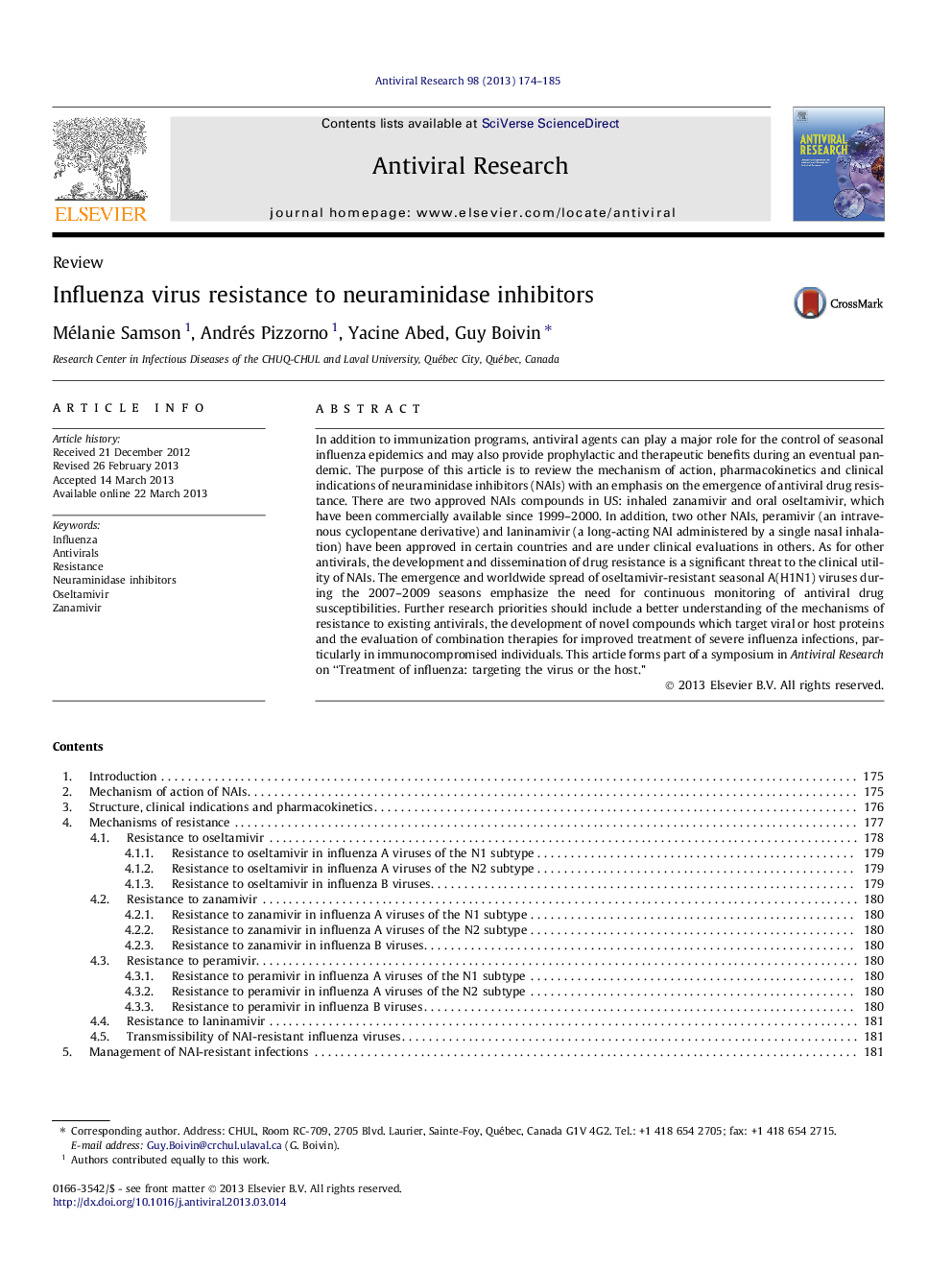| Article ID | Journal | Published Year | Pages | File Type |
|---|---|---|---|---|
| 2510185 | Antiviral Research | 2013 | 12 Pages |
•The control of influenza infections remains a public health priority in the world.•Neuraminidase inhibitors (NAIS) have demonstrated significant clinical benefits.•The emergence of drug-resistant influenza variants constitutes a major concern.•The NA gene of resistant viruses may contain mutations that improve fitness and transmissibility.•There is a need for developing novel strategies by targeting host and other viral proteins.
In addition to immunization programs, antiviral agents can play a major role for the control of seasonal influenza epidemics and may also provide prophylactic and therapeutic benefits during an eventual pandemic. The purpose of this article is to review the mechanism of action, pharmacokinetics and clinical indications of neuraminidase inhibitors (NAIs) with an emphasis on the emergence of antiviral drug resistance. There are two approved NAIs compounds in US: inhaled zanamivir and oral oseltamivir, which have been commercially available since 1999–2000. In addition, two other NAIs, peramivir (an intravenous cyclopentane derivative) and laninamivir (a long-acting NAI administered by a single nasal inhalation) have been approved in certain countries and are under clinical evaluations in others. As for other antivirals, the development and dissemination of drug resistance is a significant threat to the clinical utility of NAIs. The emergence and worldwide spread of oseltamivir-resistant seasonal A(H1N1) viruses during the 2007–2009 seasons emphasize the need for continuous monitoring of antiviral drug susceptibilities. Further research priorities should include a better understanding of the mechanisms of resistance to existing antivirals, the development of novel compounds which target viral or host proteins and the evaluation of combination therapies for improved treatment of severe influenza infections, particularly in immunocompromised individuals. This article forms part of a symposium in Antiviral Research on “Treatment of influenza: targeting the virus or the host.”
